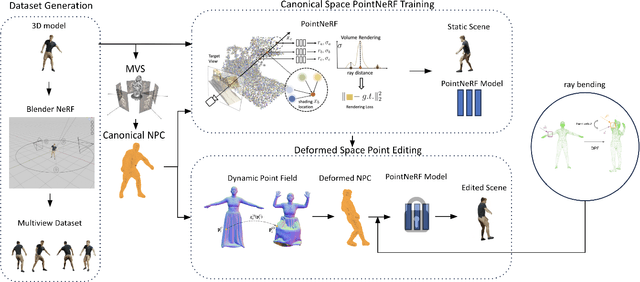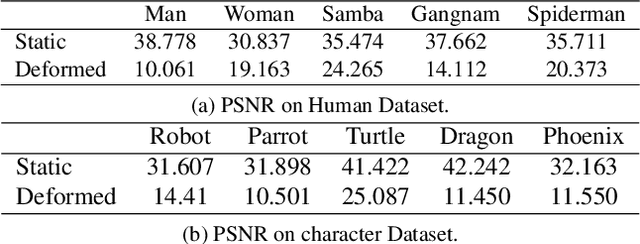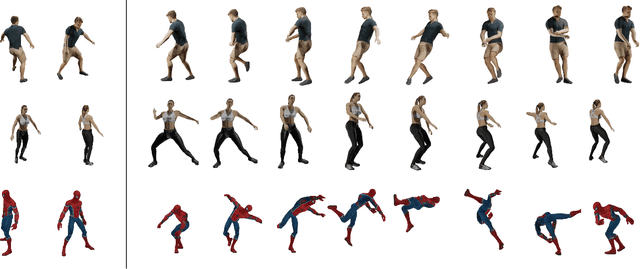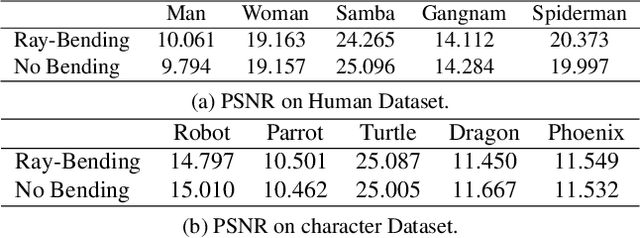Haitao Yu
Less is More: Non-uniform Road Segments are Efficient for Bus Arrival Prediction
Dec 08, 2025Abstract:In bus arrival time prediction, the process of organizing road infrastructure network data into homogeneous entities is known as segmentation. Segmenting a road network is widely recognized as the first and most critical step in developing an arrival time prediction system, particularly for auto-regressive-based approaches. Traditional methods typically employ a uniform segmentation strategy, which fails to account for varying physical constraints along roads, such as road conditions, intersections, and points of interest, thereby limiting prediction efficiency. In this paper, we propose a Reinforcement Learning (RL)-based approach to efficiently and adaptively learn non-uniform road segments for arrival time prediction. Our method decouples the prediction process into two stages: 1) Non-uniform road segments are extracted based on their impact scores using the proposed RL framework; and 2) A linear prediction model is applied to the selected segments to make predictions. This method ensures optimal segment selection while maintaining computational efficiency, offering a significant improvement over traditional uniform approaches. Furthermore, our experimental results suggest that the linear approach can even achieve better performance than more complex methods. Extensive experiments demonstrate the superiority of the proposed method, which not only enhances efficiency but also improves learning performance on large-scale benchmarks. The dataset and the code are publicly accessible at: https://github.com/pangjunbiao/Less-is-More.
The 1st EReL@MIR Workshop on Efficient Representation Learning for Multimodal Information Retrieval
Apr 21, 2025Abstract:Multimodal representation learning has garnered significant attention in the AI community, largely due to the success of large pre-trained multimodal foundation models like LLaMA, GPT, Mistral, and CLIP. These models have achieved remarkable performance across various tasks of multimodal information retrieval (MIR), including web search, cross-modal retrieval, and recommender systems, etc. However, due to their enormous parameter sizes, significant efficiency challenges emerge across training, deployment, and inference stages when adapting these models' representation for IR tasks. These challenges present substantial obstacles to the practical adaptation of foundation models for representation learning in information retrieval tasks. To address these pressing issues, we propose organizing the first EReL@MIR workshop at the Web Conference 2025, inviting participants to explore novel solutions, emerging problems, challenges, efficiency evaluation metrics and benchmarks. This workshop aims to provide a platform for both academic and industry researchers to engage in discussions, share insights, and foster collaboration toward achieving efficient and effective representation learning for multimodal information retrieval in the era of large foundation models.
Unsupervised Abnormal Stop Detection for Long Distance Coaches with Low-Frequency GPS
Nov 07, 2024Abstract:In our urban life, long distance coaches supply a convenient yet economic approach to the transportation of the public. One notable problem is to discover the abnormal stop of the coaches due to the important reason, i.e., illegal pick up on the way which possibly endangers the safety of passengers. It has become a pressing issue to detect the coach abnormal stop with low-quality GPS. In this paper, we propose an unsupervised method that helps transportation managers to efficiently discover the Abnormal Stop Detection (ASD) for long distance coaches. Concretely, our method converts the ASD problem into an unsupervised clustering framework in which both the normal stop and the abnormal one are decomposed. Firstly, we propose a stop duration model for the low frequency GPS based on the assumption that a coach changes speed approximately in a linear approach. Secondly, we strip the abnormal stops from the normal stop points by the low rank assumption. The proposed method is conceptually simple yet efficient, by leveraging low rank assumption to handle normal stop points, our approach enables domain experts to discover the ASD for coaches, from a case study motivated by traffic managers. Datset and code are publicly available at: https://github.com/pangjunbiao/IPPs.
R^3AG: First Workshop on Refined and Reliable Retrieval Augmented Generation
Oct 27, 2024Abstract:Retrieval-augmented generation (RAG) has gained wide attention as the key component to improve generative models with external knowledge augmentation from information retrieval. It has shown great prominence in enhancing the functionality and performance of large language model (LLM)-based applications. However, with the comprehensive application of RAG, more and more problems and limitations have been identified, thus urgently requiring further fundamental exploration to improve current RAG frameworks. This workshop aims to explore in depth how to conduct refined and reliable RAG for downstream AI tasks. To this end, we propose to organize the first R3AG workshop at SIGIR-AP 2024 to call for participants to re-examine and formulate the basic principles and practical implementation of refined and reliable RAG. The workshop serves as a platform for both academia and industry researchers to conduct discussions, share insights, and foster research to build the next generation of RAG systems. Participants will engage in discussions and presentations focusing on fundamental challenges, cutting-edge research, and potential pathways to improve RAG. At the end of the workshop, we aim to have a clearer understanding of how to improve the reliability and applicability of RAG with more robust information retrieval and language generation.
Point-Based Radiance Fields for Controllable Human Motion Synthesis
Oct 05, 2023



Abstract:This paper proposes a novel controllable human motion synthesis method for fine-level deformation based on static point-based radiance fields. Although previous editable neural radiance field methods can generate impressive results on novel-view synthesis and allow naive deformation, few algorithms can achieve complex 3D human editing such as forward kinematics. Our method exploits the explicit point cloud to train the static 3D scene and apply the deformation by encoding the point cloud translation using a deformation MLP. To make sure the rendering result is consistent with the canonical space training, we estimate the local rotation using SVD and interpolate the per-point rotation to the query view direction of the pre-trained radiance field. Extensive experiments show that our approach can significantly outperform the state-of-the-art on fine-level complex deformation which can be generalized to other 3D characters besides humans.
 Add to Chrome
Add to Chrome Add to Firefox
Add to Firefox Add to Edge
Add to Edge